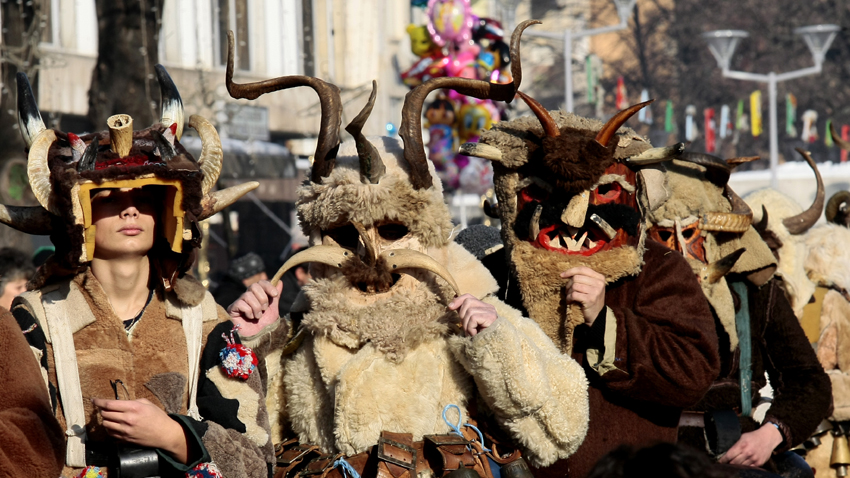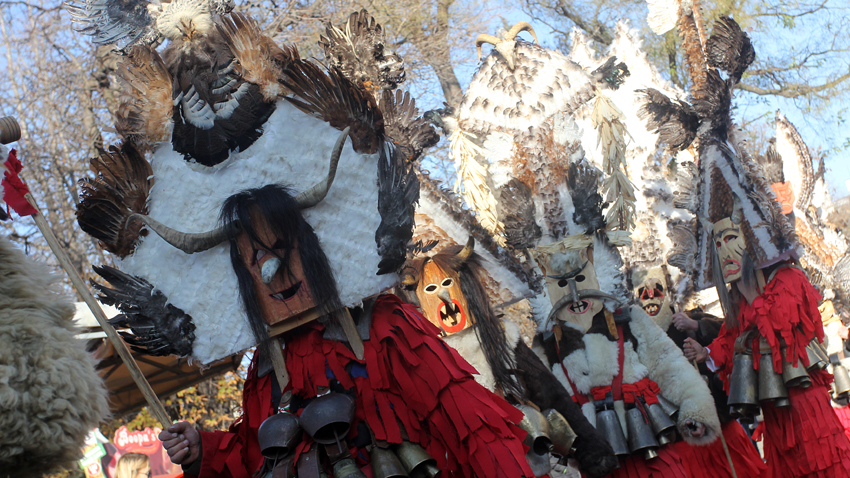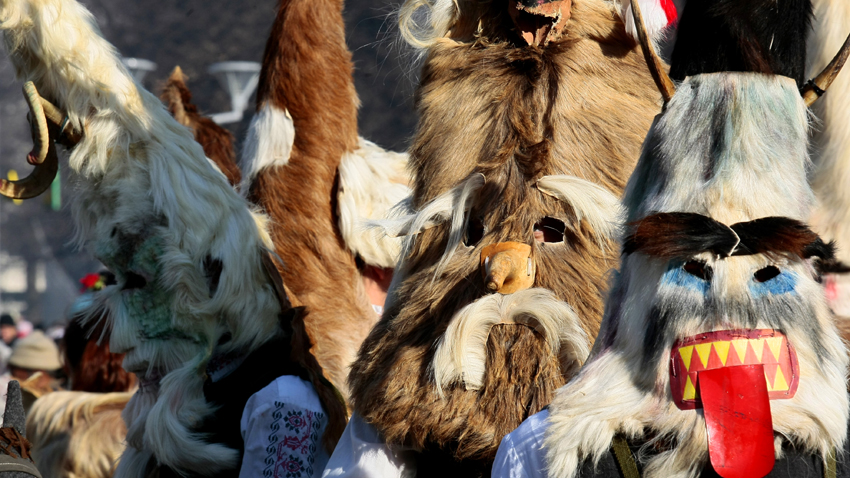Colorful, noisy and festive - this was the atmosphere in Pernik during the three days in which the small town southwest of Sofia turned into the masquerade capital of Bulgaria, the Balkans, and perhaps Europe. From 29 to 31 January, the town hosted the 25th edition of the International Festival of Masquerade Games "Surva 2016". It brought together a record number of participants - about 6,500 people from all parts of Bulgaria. This year the Surva festival celebrated its 50th anniversary. The first parade of mummer masks organized by the municipality of Pernik was held in early 1966.

Mummers from 110 groups from around the country marched along the streets of the town wearing fearsome masks made of leather and horns of domestic and wild animals. The numerous spectators admired the craftsmanship displayed in the Surva costumes made of feathers that rose to a height of several meters above the heads of participants. Yet most diverse in size and shape were mummers' bells. They are an essential attribute and symbol of the masquerade games during the Surva festival. According to folk beliefs, the farther the sound of cowbells is heard and the more frightening the masks, the farther the evil forces will escape from the world of men. Members of the mummers group "Golden Fleece" from the village of Chelopech said that the metal bells they carry on their belts usually weigh no less than 50 kg. They crafted the masks themselves and their preparation for the festival in Pernik began a year ago.

Folk groups from neighboring Balkan countries - Serbia, Romania, Greece and Macedonia arrived in Pernik especially for this large masquerade forum. The most exotic, as we understood, was the group from as far as Mali, as its members presented African dances and traditions.
Yet the festive atmosphere did not end here. The central square "Krakra" in Pernik was crowded with entrepreneurs who were selling their merchandise at colorful stalls. Everywhere there were souvenirs on sale in the form of miniature mummer masks, brass bells and Bulgarian folk embroidery on keepsakes.
The interest in the festival this year was even greater because of the fact that as of last December the "Surva" custom has been included in the list of UNESCO's intangible cultural heritage. This is the fourth Bulgarian festival that has become part of the treasury of the world organization. So far, the intangible heritage was presented by the Bistritsa Grannies, dancing on burning embers (known here as nestinarstvo) and the Chiprovtsi handmade carpets.

English version Rossitsa Petcova
Photos: BGNES
Moving to Bessarabia more than two centuries ago, some Bulgarians brought with them part of their rich rituals. In their new homeland, some customs became modified under the influence of local traditions, others disappeared, and still others have been..
The first day of January is a day filled with emotions and joyful anticipation of a prosperous year in which all family members will be healthy and will make all their dreams come true. In the traditional Bulgarian calendar, 1 January is known as..
On the first day of the incoming 2025, the small town of Razlog in the Pirin Mountain will wake up to the sound of bells, zurnas and drums . Traditionally, the colorful Kukeri festival "Starchevata" will begin at 11:00 a.m. on the central square..
Today is Babinden (Midwives' Day) - one of the most beloved and authentic Bulgarian holidays deeply rooted in local folk tradition . Celebrated on 8..
On Ivanovden, the village of Alvanovo (Northeastern Bulgaria) observes the custom called "Bathing the Sons-in-Law". The ritual is performed for health..

+359 2 9336 661
